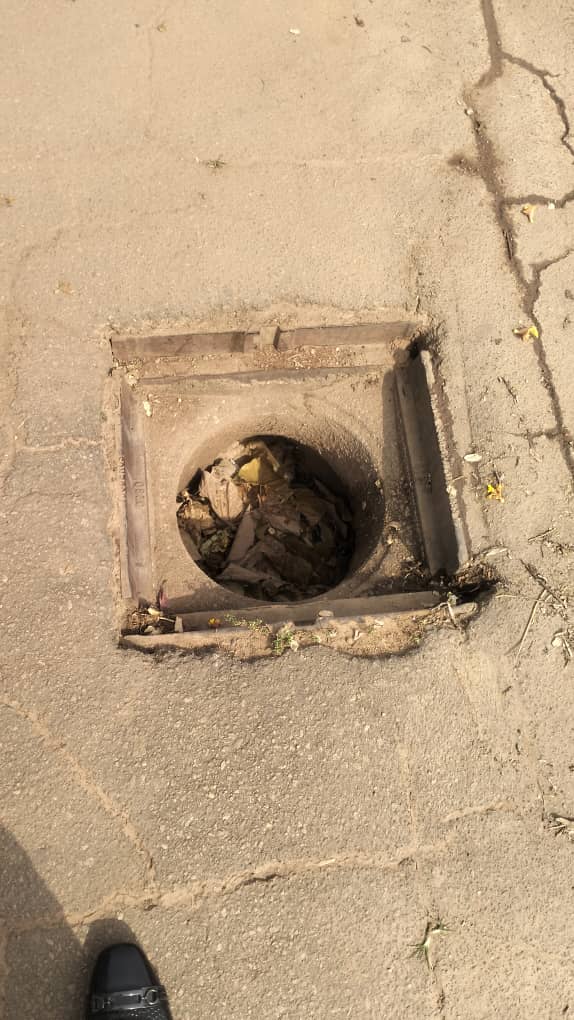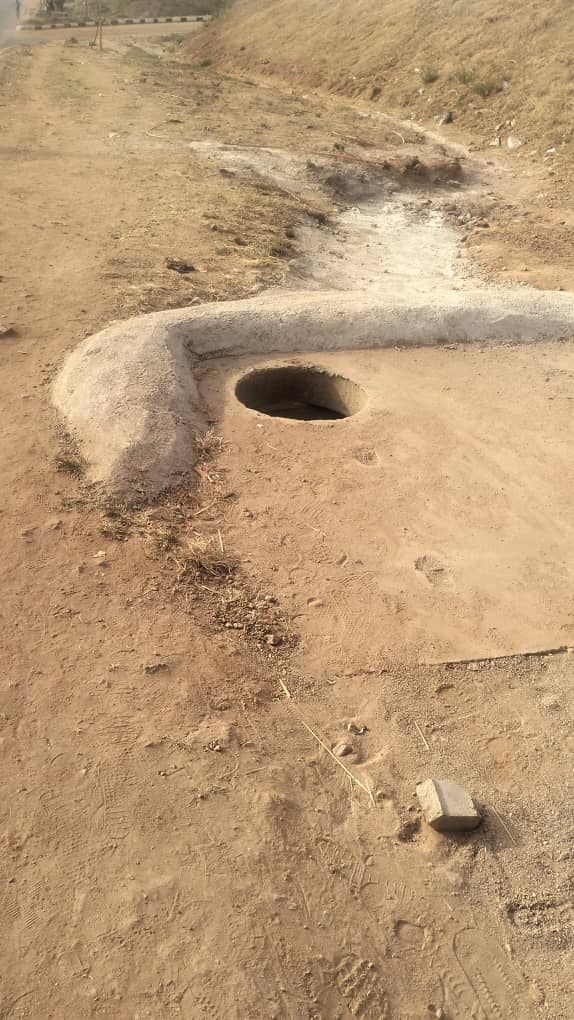By Rachel Mnena Kogi
As one walks around the heart of Nigeria’s capital, Abuja, a troubling pattern of uncovered manholes, wide open and dangerously exposed, dot the city’s streets and sidewalks. Once designed for drainage and maintenance, these manholes have become hazardous traps, claiming both attention and, at times, lives. Their gaping mouths yawn beneath the feet of pedestrians and motorists alike, especially perilous during the rainy season when rising floodwaters conceal their presence. What should be a routine stroll or daily commute quickly turns treacherous, exposing a glaring oversight in urban safety and infrastructure management. As the city grows and traffic increases, especially more dangerous during the rainy season and at night, the menace of these neglected voids calls for immediate and sustained action.

It is a danger that is not just theoretical. Last year, a close friend and former schoolmate of mine narrated his ordeal as occasioned by this menace, as he fell victim to this hazard. His story, among many untold or unknown ones, highlight just how urgent this problem has become.
“That morning, the skies had opened up with a torrential downpour, leaving puddles and flooded streets in its wake. I left home early, dressed smartly and mentally primed for a promotional exam at work—an important milestone in my career. As I alighted from a taxi, I stepped onto what I assumed was solid ground. However, in an instant, my leg plunged into an uncovered manhole completely hidden beneath the floodwaters. Losing my balance, I fell awkwardly and sustained painful injuries. Though I received immediate treatment and managed to show up for my exam, the trauma and physical pain from the incident cast a shadow over what should have been a significant day for me.”
Sadly, my friend’s experience is not an isolated one. Every rainy season, reports of injuries and sometimes fatalities—linked to uncovered manholes make headlines or spread quietly through word of mouth. One of the primary causes of this menace is the rampant theft of manhole covers, most often by scavengers who roam the city in search of metal to sell as scrap. These individuals, commonly referred to as “Mai Bola,” frequently lift the covers under the cover of night, leaving yawning holes in roads and sidewalks that pose serious hazards. The stolen covers are then sold to scrap dealers who rarely question the source, creating a black market that thrives on public infrastructure. This illegal trade continues largely unchecked due to weak enforcement and lack of surveillance in many parts of the city. Coupled with the city authorities’ slow response in replacing missing covers, the result is a growing number of dangerous manholes left open for weeks, months or even years. A general culture of neglect, which turns what should be basic infrastructure into a threat to human life, further compound this.

Uncovered manholes are not just a blemish on the capital city’s image; they are a clear and present danger, and as long as they remain unaddressed, every rainy day in Abuja carries the risk of yet another needless tragedy.
Given the dangers of uncovered manholes, addressing this crisis requires more than reactive measures—it calls for a multi-faceted, proactive approach involving all stakeholders. The government, particularly the Abuja Municipal Area Council (AMAC) and the Federal Capital Development Authority (FCDA), must begin by taking ownership of the problem through consistent mapping, monitoring, and rapid response mechanisms. Missing or damaged manhole covers should be reported and replaced within hours, not weeks. This would require setting up a dedicated response unit equipped with the resources and manpower to carry out regular inspections and prompt interventions.
Security agencies have a critical role to play in stemming the tide of theft. There must be a targeted crackdown on the scavenger networks and the scrap dealers who fuel the black market. Law enforcers should collaborate with local communities and vigilante groups to identify and apprehend those responsible for stealing public infrastructure. The law must also be amended or more strictly enforced to ensure that those caught in possession of stolen manhole covers face real consequences, including imprisonment and heavy fines, to serve as a deterrent.
Additionally, urban planning experts and civil engineers must rise to the challenge of designing safer, tamper-proof alternatives to the traditional metallic covers. Several cities around the world have adopted composite materials or covers with locking mechanisms that make them less attractive to thieves and harder to remove without authorization. Abuja can take a cue from such innovations, incorporating them into its infrastructure strategy to protect both people and property.
Furthermore, technology can play a supporting role. A digital reporting system, perhaps a mobile app or an SMS-based platform, could allow residents to quickly report open manholes, faulty covers or dangerous drainages. Such a system would bridge the gap between government and the public, ensuring faster responses and greater accountability. Community awareness campaigns through radio, social media and town hall meetings can also educate citizens on the risks associated with uncovered manholes and encourage active participation in safeguarding public infrastructure.
Lastly, civil society organizations and the media must continue to shine a spotlight on the issue. Sustained public pressure, investigative journalism and advocacy campaigns can compel the government and other authorities to act with the urgency the situation demands. The safety of Abuja residents, especially its most vulnerable, such as children, the elderly and people with disabilities must become a top priority, not an afterthought.
It is no exaggeration to say that lives are at stake. For a city that aspires to be a model of modern development, allowing uncovered manholes to persist is not only a failure of infrastructure but a failure of leadership and civic responsibility. The time to act is now before another life is changed, or lost, to a hazard that is entirely preventable.
